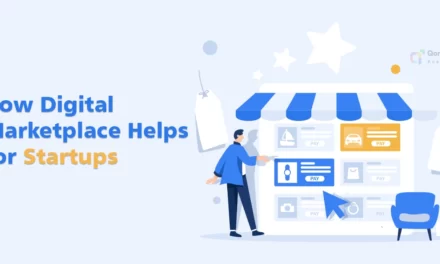In 2024, the demand for multiple marketplace software solutions has surged especially in the multi-vendor setting.
Giants like Amazon and eBay to niche marketplaces, multi-vendor platforms allow businesses to operate digital marketplaces where multiple vendors can sell their products and services.
These platforms enable entrepreneurs and businesses to operate online marketplaces where various sellers can list their products or services, and buyers can seamlessly purchase them, all under one umbrella.
The right marketplace software offers a unified platform to manage vendors, streamline operations, and drive growth for marketplace owners.
In this blog, we’ll explore what multiple marketplace software is, how it works, what features you should look for, and the best platforms available in 2024.
What Is A Multiple Marketplace Software?
Multiple marketplace software is a platform that allows businesses to create online marketplaces where multiple vendors can sell their products or services to buyers.
These platforms are designed to handle various transactions between vendors and customers, manage product listings, process payments, and provide logistical support for shipping and delivery.
Unlike single-vendor e-commerce platforms where only the business owner sells products or services, multi vendor marketplaces allow various independent vendors to operate under a shared marketplace infrastructure.
Key stakeholders in a multi vendor marketplace include:
- Marketplace Owners: Manage the overall platform, its operations, and the vendor network.
- Vendors: Independent sellers who list their products/services on the marketplace.
- Buyers: Customers who visit the marketplace to browse, compare, and purchase products/services.
A key feature of multi vendor marketplaces is the ability to scale rapidly, as more vendors can join and offer a wide variety of products or services.
This scalability provides a unique opportunity for marketplace owners to grow their businesses without needing to invest in inventory or additional infrastructure.

How A Multiple Marketplace Software Works
Multiple marketplace software streamlines the process of operating a multi-vendor platform.
Let’s see a detailed breakdown of how it works, step by step.
User Registration
Buyers and vendors register on the marketplace platform. Vendors must provide necessary business details and verify their accounts before being approved to sell on the marketplace. Buyers typically sign up with their email or social media accounts.
Profile Setup
Once registered, vendors create their profiles by adding company information, business details, and payment methods. Buyers can also personalize their shopping profiles by setting preferences for the products or services they are interested in.
Product/Service Listing
Vendors list their products or services on the marketplace. This includes adding product descriptions, images, pricing, and inventory levels. Marketplace software often includes bulk listing tools, which allow vendors to upload multiple products at once.
Product Discovery
Buyers visit the marketplace and use the search function to browse through the available products or services. The marketplace provides filters and categories to make it easier for buyers to find what they are looking for, ensuring an organized shopping experience.
Order Placement
When a buyer selects a product or service, they add it to their cart and proceed to checkout. Multiple items from different vendors can often be purchased in a single transaction, with the marketplace software automatically dividing the order among the vendors.
Payment Processing
The marketplace software integrates with secure payment gateways, enabling buyers to pay for their orders using various payment methods (e.g., credit cards, PayPal, or other regional options). The software automatically calculates commissions for the marketplace owner and splits the payments between the vendors and the platform.
Order Fulfillment
Once payment is confirmed, vendors are notified of the order and begin preparing it for shipment. Vendors manage their own fulfillment process, which could involve shipping products directly to buyers or, in some cases, using third-party logistics providers.
Tracking and Notifications
The software provides buyers with updates about their order, including shipping information and tracking details. Notifications are sent at key stages of the fulfillment process (e.g., when the order is shipped or delivered).
Reviews and Feedback
After receiving the product or service, buyers can leave reviews and rate the vendor. This feature builds trust and helps other buyers make informed decisions based on vendor performance.
Support and Issue Resolution
The marketplace offers customer support for both buyers and vendors. Vendors can reach out to the marketplace owner for assistance, while buyers can contact vendors or the platform’s customer service for issues related to orders, refunds, or disputes.
Analytics and Reporting
Admins (marketplace owners) can access detailed analytics and reports to monitor vendor performance, sales trends, customer behavior, and more. These insights help marketplace owners optimize their platforms for better efficiency and growth.
These 11 steps help you to understand how a multiple marketplace software works.

What You Should Look For In A Top Multiple Marketplace Software
Choosing the best multiple marketplace software depends on the unique needs of your business, but there are key features you should always look for:
User-Friendly Interface
A clean, intuitive interface makes it easier for vendors and buyers to navigate the marketplace. Vendors should be able to manage their products, orders, and inventory with ease, while buyers should enjoy a seamless shopping experience with straightforward browsing, searching, and checkout processes.
Vendor Management Tools
Robust vendor management features are essential for maintaining a healthy marketplace. Look for platforms that offer:
- Vendor Dashboard: A comprehensive dashboard where vendors can manage their products, view sales metrics, and handle orders efficiently.
- Automated Commission Management: This feature simplifies the process of calculating and distributing commissions to vendors, reducing administrative workload.
Payment Gateways
The software should support multiple payment gateways to ensure smooth transactions for a global audience. Popular gateways like PayPal, Stripe, and regional options ensure that buyers can choose their preferred method of payment. The platform should also handle automated commission distribution between the marketplace owner and vendors.
Scalability
As your marketplace grows, the software should scale seamlessly without compromising performance. The ability to accommodate an increasing number of vendors, products, and transactions is essential for growth. Look for platforms with strong infrastructure that can handle large volumes of data.
Mobile Responsiveness
In today’s world, more buyers and sellers interact via mobile devices. Your chosen marketplace software should offer a fully responsive design, ensuring a consistent experience across desktop, tablet, and mobile devices.
Customizability
Customizability allows marketplace owners to tailor their platform to match their brand’s identity. This includes customizing themes, layouts, and even specific features to suit the marketplace’s niche and user experience preferences.
Robust Analytics
Access to real-time reports on sales, traffic, customer behavior, and vendor performance is critical for decision-making. Comprehensive analytics tools help marketplace owners refine their strategies, optimize user experience, and grow their businesses.
Marketing Tools
Built-in marketing features like SEO optimization, discount coupons, referral programs, and email marketing tools help drive traffic to the marketplace and boost sales. Integration with social media platforms and marketing channels is also important for broadening your marketplace’s reach.
7 Best Multi Vendor Marketplace Platforms In 2024
As the demand for online multi vendor marketplaces grows, several software solutions stand out in 2024 for their features, ease of use, and scalability. Here are seven of the best platforms to consider:
QoreUps
QoreUps is a comprehensive SaaS platform designed for entrepreneurs looking to create a custom multi vendor marketplace without extensive technical expertise.
- Best For: Businesses that require a customizable and user-friendly solution.
- Key Features: Multi-vendor support, vendor management tools, advanced analytics, and flexible payment integration options.
Shopify Plus
Shopify Plus is an enterprise-level e-commerce solution that can be enhanced with multi-vendor functionality through third-party applications like Multi Vendor Marketplace.
- Best For: Large businesses seeking a robust and scalable e-commerce platform.
- Key Features: Extensive app ecosystem, mobile responsiveness, and powerful SEO capabilities.
CS-Cart Multi-Vendor
CS-Cart provides a flexible and customizable multi-vendor platform that supports various business models.
- Best For: Small to medium-sized businesses looking for a powerful marketplace solution.
- Key Features: Easy product management, mobile-friendly design, and vendor commission management.
Magento (Adobe Commerce)
Magento is a leading open-source e-commerce platform known for its flexibility and scalability, with multi-vendor capabilities via extensions.
- Best For: Enterprises with technical resources to manage customizations.
- Key Features: Advanced marketing tools, extensive customization options, and a large community of developers.
Yo!Kart
Yo!Kart is a dedicated multi vendor marketplace platform designed specifically for startups and small businesses, providing an affordable solution to launch online marketplaces.
- Best For: Entrepreneurs looking for an easy-to-use, budget-friendly platform.
- Key Features: SEO-friendly, multi-language support, and customizable themes.
Dokan (WordPress)
Dokan is a popular multi vendor marketplace plugin for WordPress, allowing users to create their marketplace with ease.
- Best For: Businesses already using WordPress for their website.
- Key Features: User-friendly interface, vendor commission settings, and seamless WooCommerce integration.
BigCommerce
BigCommerce is a powerful e-commerce platform that offers multi-vendor capabilities through third-party apps, making it suitable for businesses of various sizes.
- Best For: Mid-market and large enterprises that prioritize flexibility and scalability.
- Key Features: Built-in SEO features, multi-channel selling options, and robust analytics.
Build Your Marketplace Software With QoreUps
If you’re considering launching your multi vendor marketplace, QoreUps stands out as an exceptional choice for building your platform.
With its robust features and user-friendly design, QoreUps provides the tools you need to create a successful marketplace tailored to your specific business requirements.
Let’s see how QoreUps can help you build your marketplace software effectively:
- Customization: QoreUps allows you to design your marketplace to reflect your brand identity with customizable themes and layouts.
- User-Friendly Dashboard: Both vendors and marketplace owners benefit from an intuitive dashboard, making it easy to manage operations.
- Scalability: QoreUps is built to grow your business, accommodating increased vendor activity and user traffic.
- Integrated Payment Solutions: The platform supports multiple payment gateways, ensuring secure transactions for buyers and sellers alike.
- Comprehensive Support: QoreUps offers robust support and resources to help you navigate the platform and address any challenges.
Build your marketplace software with QoreUps so that you can focus on growing your business while benefiting from a powerful software solution designed for success.

Conclusion
In the rapidly evolving commerce landscape, establishing a successful multi vendor marketplace requires the right software solution.
Multiple marketplace software enables you to create a dynamic platform that connects buyers and vendors while providing a seamless user experience.
In this blog, we’ve explored the definition and functionality of multiple marketplace software, highlighted the features to look for when selecting a platform, and introduced you to the top solutions available in 2024.
Among these, QoreUps emerges as a powerful option for building and managing your marketplace, offering a wealth of features designed to foster vendor engagement, streamline operations, and enhance customer satisfaction.
Embrace the opportunities that come with a multi-vendor model and set your business up for long-term growth and profitability.






